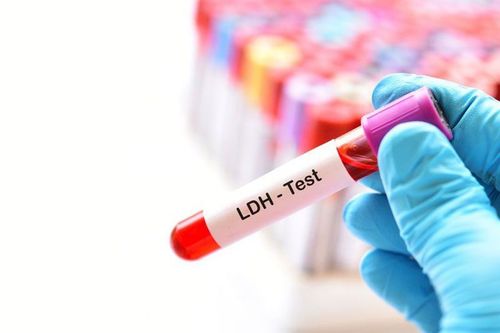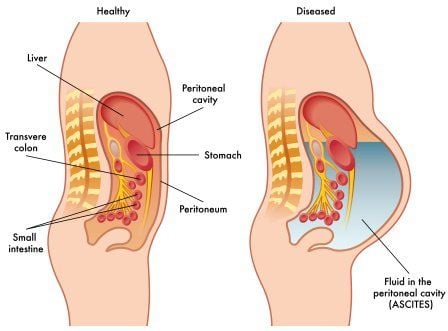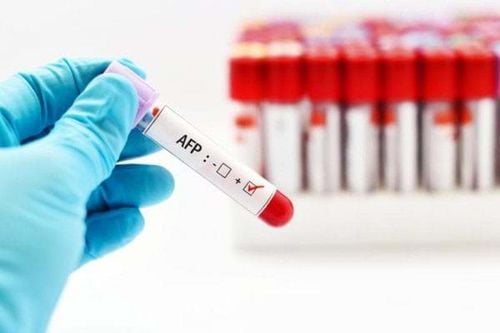This is an automatically translated article.
The lactic acid dehydrogenase (LDH) test is a tool to look for signs of tissue damage in the body. When cells are damaged or destroyed, this enzyme is released into the bloodstream or internal organs. By measuring in blood or body fluids, high LDH is a proof that helps doctors diagnose and monitor patients' medical conditions more conveniently.1. What is the lactic acid dehydrogenase (LDH) test?
The lactic acid dehydrogenase test is to measure the concentration of lactic acid dehydrogenase (LDH) in the blood or sometimes in other body fluids. LDH is a protein that acts as an enzyme, participating in an important role in cell metabolism to create energy for the body. LDH is found in most tissues of the body, including in the blood, heart, kidneys, brain, and lungs.
When these tissues are damaged, they release LDH into the blood or other body fluids. If LDH levels in the blood or fluids are high, it means some tissue in the body has been damaged by disease or injury.
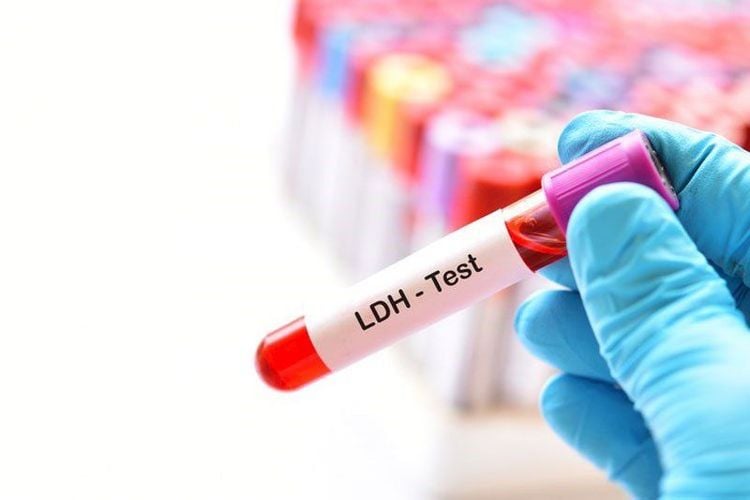
Xét nghiệm axit lactic dehydrogenase (LDH)
2. When is the lactic acid dehydrogenase test ordered?
2.1. In the blood The LDH test is ordered when a doctor suspects that a patient has a disease or condition that is causing cell or tissue damage. An elevated LDH, along with abnormalities on other tests, such as ALT, AST, or ALP, can help diagnose the current condition and help identify which organs are involved.
LDH levels can also sometimes increase when a person has had an injury or has been diagnosed with cancer.
2.2. In Body Fluids LDH testing will be ordered when a patient has signs and symptoms of specific organ damage such as meningitis, pericardial effusion, pleural or peritoneal effusion. At this time, a blood sample for LDH test was also collected for comparison and comparison.
In addition, not only LDH, biochemical indicators, other cells in the specimen, including scanning for foreign cells, bacterial cultures, should also be performed to support diagnosis and find the cause.
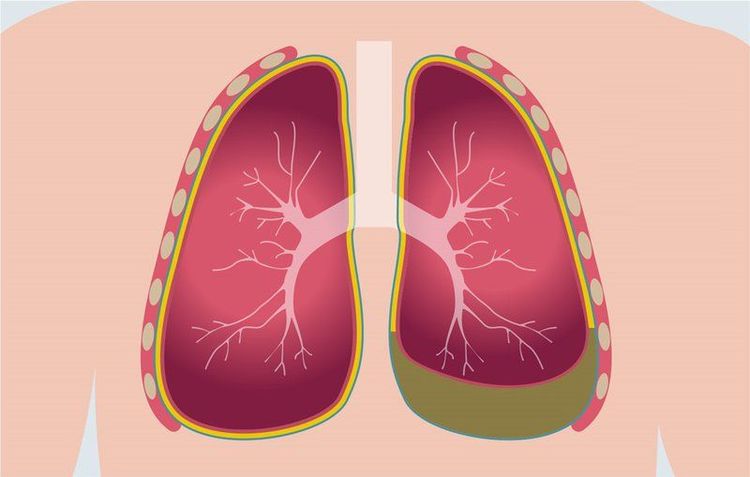
Bệnh nhân tràn dịch màng phổi được chỉ định xét nghiệm LDH
3. Procedure for performing the lactic acid dehydrogenase test and how to analyze the results
The LDH test is determined in the blood and has the same procedure as other common blood tests. Accordingly, the patient does not need to fast or do any special preparation. A blood sample is taken from a vein in the forearm or elbow and stored in a test tube. All subsequent steps are performed automatically until the results are obtained. The same is done for specimens that are body fluids.
LDH test results may vary depending on age, sex, medical history as well as laboratory, test method. Therefore, the quantitative results of LDH need to be compared with many different standards. However, the normal range for blood levels of LDH is:
Newborns: 160 to 450 units per liter (UI/L) Newborns: 100 to 250 units per liter (UI/L) Children: 60 to 170 units per liter (UI/L) at 30°C Adult or elderly: 100 to 190 units per liter (UI/L) at 37°C

Lấy mẫu máu thực hiện xét nghiệm LDH
If your blood LDH count is higher than normal, it could mean that you have organ or tissue damage. However, the level of LDH in the blood cannot indicate which tissues or organs are damaged, possibly the heart, lungs, kidneys and liver... Common conditions with elevated LDH tests are:
Syndrome hemolytic anemia Giant cell anemia Infectious diseases such as infectious mononucleosis (mono), meningitis, encephalitis, HIV sepsis Intestinal infarction Myocardial infarction Pulmonary embolism Acute kidney disease Acute liver disease Acute muscle and soft tissue injury Pancreatitis Fracture Testicular cancer, lymphoma or other cancer Shock or hypotension Asphyxiation due to lack of oxygen

Gãy xương có thể làm tăng nồng độ LDH trong máu
Even in patients with autoimmune diseases such as lupus, advanced cancer, unsuccessful chemotherapy... can also cause higher LDH levels.
In contrast, low or normal LDH levels are not a serious problem. This is also sometimes encountered when a person consumes large amounts of ascorbic acid (vitamin C).
For body fluids such as cerebrospinal fluid, high levels of LDH may indicate meningitis possibly caused by bacteria. Conversely, if this value is low or normal, it indicates that meningitis is more likely to be caused by a virus.
For pericardial, peritoneal, or pleural fluid, high LDH is a criterion for the presence of this abnormal amount of fluid that is exudative, in contrast to transudative. The cause of the discharge is usually congestive heart failure or cirrhosis of the liver. Meanwhile, exudation is when there is some cause that leads to acute inflammation or chronic inflammatory reactions. Therefore, LDH becomes one of the tools to diagnose the cause of effusion in these organs.

Xét nghiệm LDH cần được thực hiện tại cơ sở y tế uy tín
4. Factors that can affect LDH . test results
During the analysis of the results, there are a number of factors that can affect the LDH value that need to be known to make judgments and arguments. Example:
Strenuous exercise can cause a temporary increase in LDH in the blood. Hemolysis in the blood sample can cause falsely elevated LDH results. This can happen if the sample is processed raw, stored at high temperatures, or if the sample is difficult to collect. If the patient's platelet count is elevated, the serum LDH may be artificially high and not reflect the actual LDH present in the circulation. If the blood sample is contaminated or infected by an external infection, the LDH will also be higher. If you have used anesthetics, aspirin, narcotics, and certain other medications, your LDH test may also be higher than normal. Meanwhile, drugs with ascorbic acid (vitamin C) when used again can reduce LDH levels. Likewise, the alcohol in alcohol can also affect overall LDH levels.
In summary, although there are now many highly specialized testing facilities, the role of LDH still holds an important place in the identification and assessment of tissue and organ damage in the body. However, it is necessary to understand the factors that can affect the results of this test in order to make a judgment with high accuracy.
Reference source: webmd.com; medlineplus.gov
Recommended video:
Periodic health check at Vinmec: Protect yourself before it's too late!
MORE:
What is a quantitative LDH test and when should it be done? What does the ALT number in a blood test say about the health of the liver? The role of ALT and AST in the diagnosis of liver diseases




